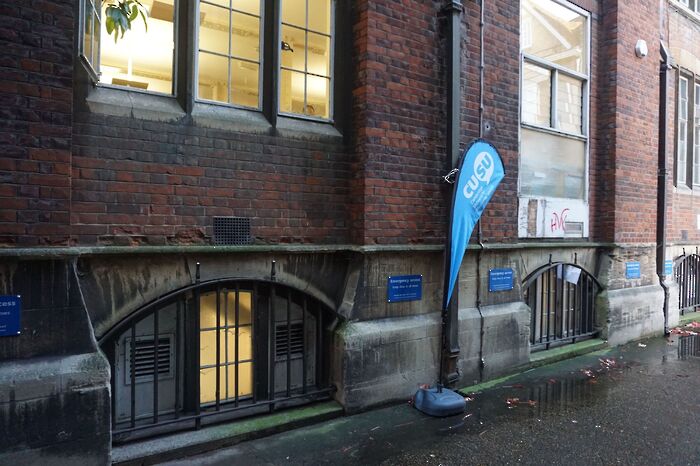We must not allow Oxbridge’s access problem to fuel elitism within top professions
Charlotte Lillywhite argues that improving access would break the dominance of those from privileged backgrounds in the most competitive careers

The access debate in Cambridge is usually focused on acceptance into the institution. Having previously directed my column toward discussing the way in which this neglects a class-related discussion of post-admissions access within Cambridge life, I think it is also vital to recognise how this continues to affect life post-university.
Figures show that inequalities faced by young people prior to becoming Cambridge students are not erased by a Cambridge education. The Sutton Trust’s 2016 Leading People Report exposed how independently-educated Oxbridge grads saturate the highest-paying careers: those who went to private school constitute 74% of those in the judiciary, 61% in medicine, 51% in journalism and 50% in cabinet politics. From this, 74% of professionals in the judiciary, 54% in journalism, 47% in cabinet politics and 40% in medicine went to Oxbridge.
“The University’s role is not just to educate the students who arrive on its doorstep, but to actively seek out those whose schools or backgrounds aren’t historically connected to the doors of its colleges”
If this blatant inequality hasn’t hit you hard enough yet, consider the fact that only seven percent of children are educated privately and just one percent of the population attended Oxbridge. Let’s not forget that those who went to grammar school – another institution that research has shown to be dominated by privilege – are included within the state school statistic. This insulated, elitist environment, completely alien to most people, is being given the loudest voice and not enough people are talking about it.
Let’s put Cambridge’s role in even greater focus. In April, Varsity reported that between 2006 and 2016, over a third of Cambridge students were educated at only 100 schools. And, as revealed by Varsity, the University’s outreach efforts vary hugely by region, with London divided into 33 areas and targeted by 17 colleges according to its Area Links Scheme, while the entirety of Wales is targeted by only two colleges.
And, no, the domination of top career pathways by private-schoolers and Oxbridge students is most certainly not because they are naturally more skilled. Privilege correlates to success, not intelligence. For students attending a Russell Group University with one A* at A level, state school students were likely to perform better than their privately-educated peers. Yet a 2017 report by the Social Mobility Commission warned that, at the current rate of progress, it would take 120 years before underprivileged young people are as likely as their wealthier peers to gain A level or equivalent qualifications. Parents send their children to private schools not because of the grades they promise, but because of the privileges they guarantee, including a golden ticket to Oxbridge and top professions.
Of course, colleges are not responsible for the many deeply-entrenched years of privilege which arrive on their doorsteps each year, but they are responsible for their choices beyond this: the proportion of students from various backgrounds they accept and the extent of their own outreach efforts being two immediately obvious examples. By not combatting the elitism at play within society at large, their actions have far-reaching and unacceptable consequences.
Not only does wealth serve as a much higher guarantee of success, but it threatens to lock it into a vicious cycle. The Oxbridge graduates who occupy positions of power choose their successors, enabling inequality to prosper. Elitism breeds elitism.
“The liberalism of many Cambridge students is not a substitute for the presence of actual diverse socioeconomic experience”
Are we really going to continue to allow the most privileged one percent of our population to dominate areas as vast and influential as politics, law, medicine and the media? We must remember that these are careers which put people in prison, save lives, and decide key sociopolitical issues. What’s more, those within these fields are the leading figures who claim to represent the underrepresented, the marginalised and disadvantaged. Many of our journalists, doctors, lawyers and MPs have experienced life through an intensely privileged lens, undeniably blurring their understanding of the issues affecting the non-elite.
It is so easy to forget this when we come into contact with the wealth of liberal and progressive minds here at Cambridge. But the liberalism of many Cambridge students is not a substitute for the presence of actual diverse socioeconomic experience. Cambridge must open its doors to a wider pool of students if it is to justify its place as a top university, capable of bringing out some of the best talent and contributing this to the jobs market.
Ultimately, the University, as a stronghold of privilege, will perpetuate the inequality of post-university career paths, or become a bastion of change. Its role is not just to educate the students who arrive on its doorstep, but to actively seek out those whose schools or backgrounds aren’t historically connected to the doors of its colleges. Its estrangement from reality perpetuates and enables the alienation of the less privileged from top careers, a practice that has no place in the fairer and more equal society for which we must aim.
 Comment / Cambridge’s tourism risks commodifying students18 April 2025
Comment / Cambridge’s tourism risks commodifying students18 April 2025 News / Cambridge student numbers fall amid nationwide decline14 April 2025
News / Cambridge student numbers fall amid nationwide decline14 April 2025 News / Greenwich House occupiers miss deadline to respond to University legal action15 April 2025
News / Greenwich House occupiers miss deadline to respond to University legal action15 April 2025 Comment / The Cambridge workload prioritises quantity over quality 16 April 2025
Comment / The Cambridge workload prioritises quantity over quality 16 April 2025 News / Varsity ChatGPT survey17 April 2025
News / Varsity ChatGPT survey17 April 2025





